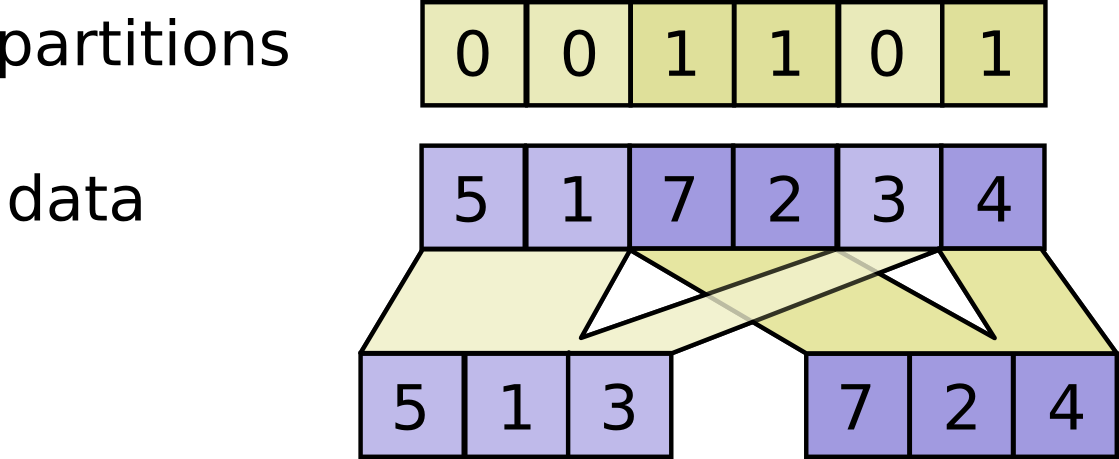tf.dynamic_partition | TensorFlow v2.16.1 (original) (raw)
Partitions data into num_partitions tensors using indices from partitions.
View aliases
Compat aliases for migration
SeeMigration guide for more details.
tf.compat.v1.dynamic_partition
tf.dynamic_partition(
data: Annotated[Any, TV_DynamicPartition_T],
partitions: Annotated[Any, _atypes.Int32],
num_partitions: int,
name=None
)
For each index tuple js of size partitions.ndim, the slice data[js, ...]becomes part of outputs[partitions[js]]. The slices with partitions[js] = iare placed in outputs[i] in lexicographic order of js, and the first dimension of outputs[i] is the number of entries in partitions equal to i. In detail,
outputs[i].shape = [sum(partitions == i)] + data.shape[partitions.ndim:]
outputs[i] = pack([data[js, ...] for js if partitions[js] == i])
data.shape must start with partitions.shape.
For example:
# Scalar partitions.
partitions = 1
num_partitions = 2
data = [10, 20]
outputs[0] = [] # Empty with shape [0, 2]
outputs[1] = [[10, 20]]
# Vector partitions.
partitions = [0, 0, 1, 1, 0]
num_partitions = 2
data = [10, 20, 30, 40, 50]
outputs[0] = [10, 20, 50]
outputs[1] = [30, 40]
See dynamic_stitch for an example on how to merge partitions back.

| Raises |
|---|
| InvalidArgumentError in following cases: If partitions is not in range [0, num_partiions) If partitions.shape does not match prefix of data.shape argument. |
| Args | |
|---|---|
| data | A Tensor. |
| partitions | A Tensor of type int32. Any shape. Indices in the range [0, num_partitions). |
| num_partitions | An int that is >= 1. The number of partitions to output. |
| name | A name for the operation (optional). |
| Returns |
|---|
| A list of num_partitions Tensor objects with the same type as data. |